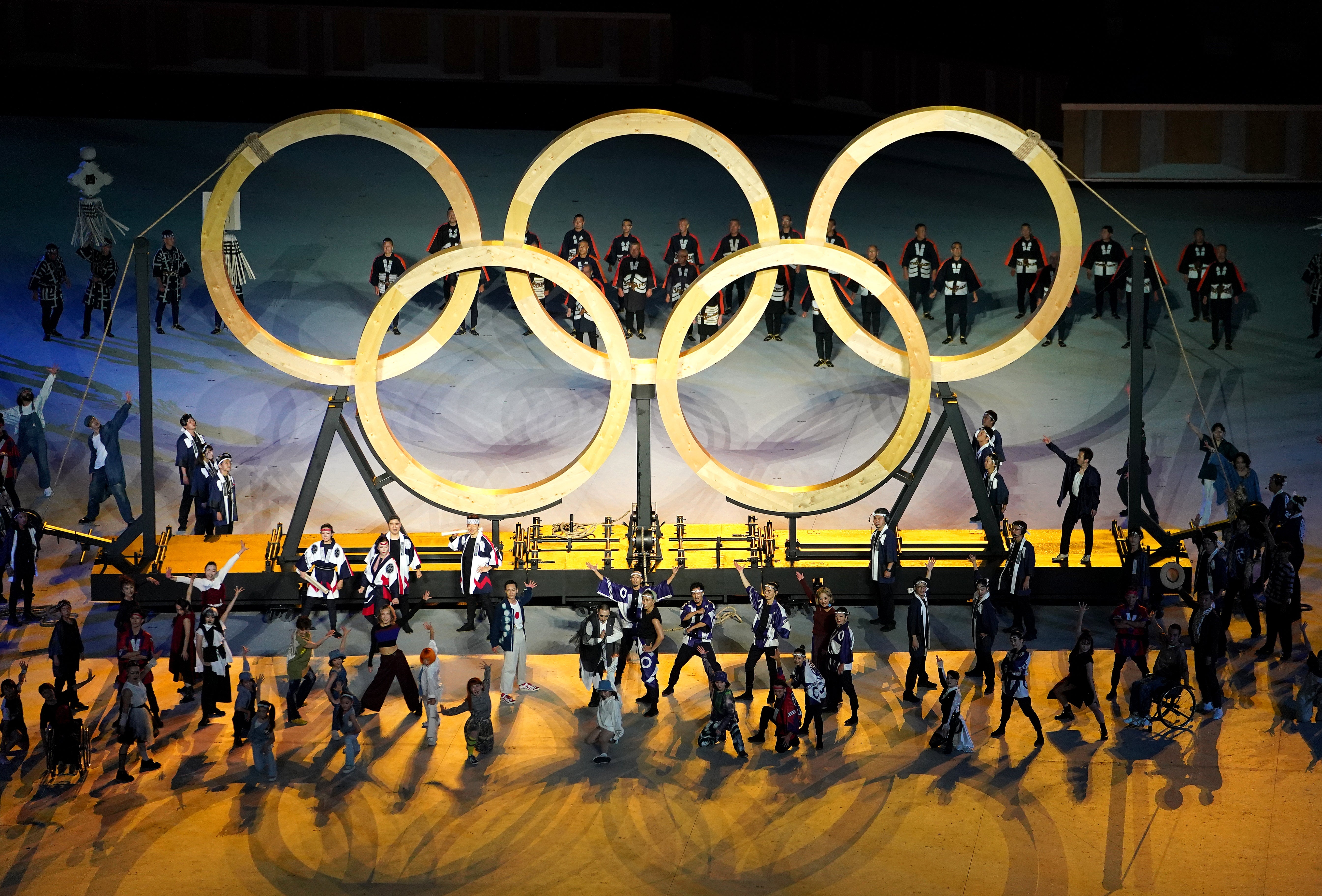Tokyo 2020 Games open with ceremony short on schmaltz and heavy on symbolism
Japan’s four-time Grand Slam tennis champion Naomi Osaka lit the Olympic flame.

Your support helps us to tell the story
From reproductive rights to climate change to Big Tech, The Independent is on the ground when the story is developing. Whether it's investigating the financials of Elon Musk's pro-Trump PAC or producing our latest documentary, 'The A Word', which shines a light on the American women fighting for reproductive rights, we know how important it is to parse out the facts from the messaging.
At such a critical moment in US history, we need reporters on the ground. Your donation allows us to keep sending journalists to speak to both sides of the story.
The Independent is trusted by Americans across the entire political spectrum. And unlike many other quality news outlets, we choose not to lock Americans out of our reporting and analysis with paywalls. We believe quality journalism should be available to everyone, paid for by those who can afford it.
Your support makes all the difference.Ten storeys high in the window of an apartment building adjacent to the Olympic Stadium nine golden balloons spelled out ‘TOKYO 2020’, the faces of its occupants pressed up against the glass hoping to gain a precious glimpse of the opening ceremony unfurling on their own doorstep.
Down below, on the teeming, fenced-off streets of Gaien Nishi Dori Avenue, protesters with megaphones crackled vociferous opposition to the Games in a park complete with a statue of Baron Pierre de Coubertin, who devised the interlocking logo of the Olympic Rings as a motif of international unity.
Their every step tracked by camera phones and plaintive calls of ‘konichiwa’, ranks of foreign media trooped into the stadium on the other side of rings of steel fencing, directed through eerily deserted concrete concourses to one side of the brand new, £1billion Olympic Stadium whose 68,000 seats remained otherwise almost entirely empty.
The remaining few watched the four-time grand slam champion Naomi Osaka light the Olympic flame: in two days’ time, she will begin her quest for what would be one of the most popular gold medals of the Olympics in front of the empty grandstands at the Ariake Tennis Park.
Dogged by controversy – its director had become the third significant figure forced to resign on the eve of the ceremony over historic charges of anti-Semitism – Tokyo 2020 officials delivered a stripped-down spectacle whose central messages of hope and togetherness had evidently not been entirely successful at penetrating the stadium’s concrete core.
Amid a city-wide State of Emergency, the ceremony’s many moments of silence served as timely if inadvertent reminders of the controversy generated by pressing ahead with these re-arranged Games, those megaphoned reminders drifting into the stadium through the sultry night air.
Organisers had promised a ceremony suited to the solemn occasion, and it was fittingly short on schmaltz. By the time International Olympic Committee president Thomas Bach made his address, and Emperor Naruhito tersely declared the Games officially open, the majority of the estimated 6,000 athletes who took part in the parade were on their way back to the Olympic Village.
The contrast with so many previous, lavish spectacles could not have been more pronounced than in the choice of the Suginama Junior Chorus, admittedly backed by a series of on-screen stars including the American songwriter John Legend, to lead a lengthy rendition of John Lennon’s ‘Imagine’.
The last time the song rang out at an opening ceremony for a major Games was in Baku in 2015, when Lady Gaga was reportedly paid £1.5million to hide away in her hotel suite for three days beforehand in order to sustain the element of surprise.
Six years on it is pings rather than pounds that are keeping so many of athletes and media representatives of Tokyo 2020 ensconsed within their own four walls, a consequence of the Japanese government’s stringent, if often frustratingly inconsistent coronavirus quarantine measures.
Heavy symbolism was everywhere: in the 1,800 illuminated drones that lit up the Tokyo sky in the shape of a globe; in the way in which the Olympic cauldron unfurled like a flower – an illustration, according to the accompanying blurb, for vitality and hope.
Twenty-two British athletes marched in a much-reduced athletes’ parade, the smallest delegation since 1980, while the Syrian flag was carried into the stadium by the 12-year-old table tennis player Hend Zaza, the youngest athlete to take part in the Games.
Zaza’s home city of Hama was destroyed by the civil war in her homeland, and she was encouraged to take up the sport at the age of five as a means of escape.
“Table tennis gave me everything and taught me to be a strong human being, a confident one,” she said this week. “Once we go and play, we forget everything. We only think about playing, and we are training so we can challenge the whole world.”
Stories like Zaza’s scatter the history of the Olympic Games, yet seldom have they served as such a pertinent reminder of the power of sport to truly change lives for the better.
Over the chorus of cack-handed preparations, cynical corporate concerns and angry megaphone protests, amid all those shallow platitudes to peace and unity, Zaza’s voice, and those of the family in the 10-storey flat with the golden balloons and enthusiastic faces, are the ones that deserve to ring out the loudest.